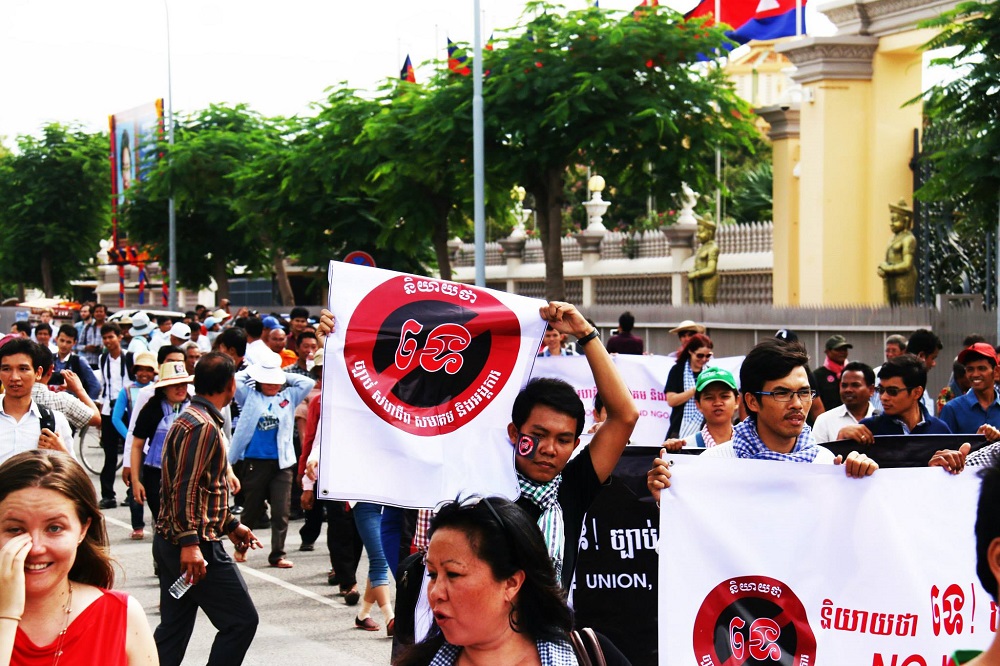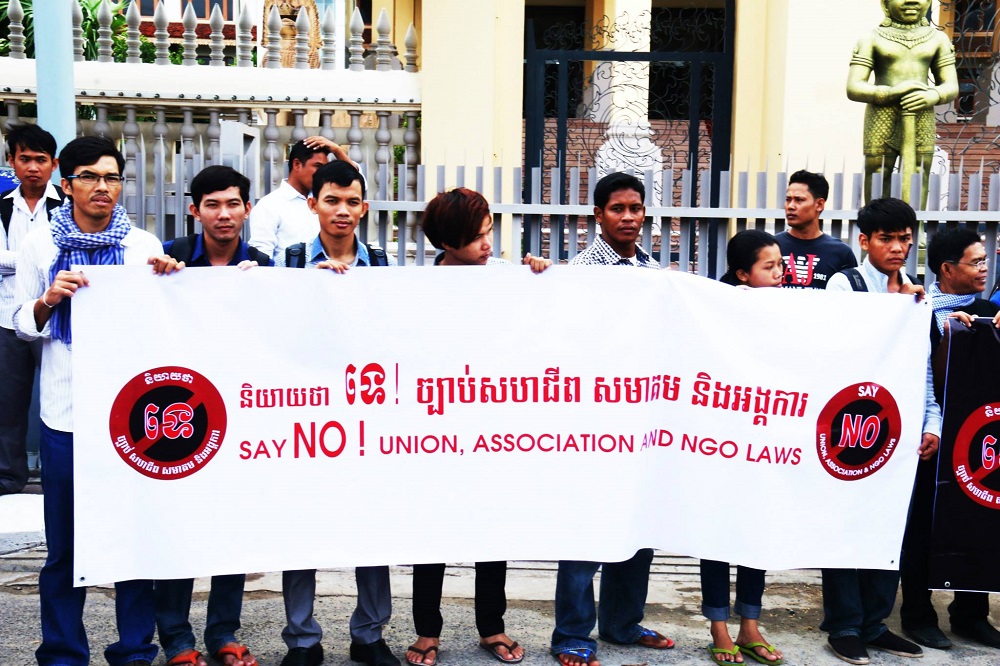The government has officially staffed a newly created “Civil Society Forum” – empowered to influence policy in the sector – with government officials and very few civil society members, prompting observers to suggest the body will only serve to legitimise flawed legislation like the controversial NGO Law and the recent clampdown on independent NGOs.
While the forum was created through a sub-decree last year, a directive issued earlier this month – and published on government-aligned site Fresh News yesterday – shows a majority of the group will consist of Council of Ministers members and ministerial staffers, along with a handful of NGO personnel.
The development comes at a time when the government has intensified an apparent crackdown on what it considers critical and “pro-opposition” NGOs, either through investigations into their tax compliance or fulfilment of their requirements under the controversial Law on Associations and NGOs (Lango).
The USAID-funded pro-democracy NGO National Democratic Institute was expelled from the country last week for alleged Lango violations, while local NGOs Comfrel, Licadho and Adhoc have been approached by the Tax Department.
At the same time, independent media organisations have also felt the squeeze, with the Cambodia Daily facing a purported $6.3 million tax bill and imminent closure, and broadcasters Radio Free Asia, Voice of Democracy and Voice of America seeing stations airing their programmes shut down.
The June 2016 sub-decree establishing the new forum empowers the 13-member group to facilitate the “process of new policy suggestions”, brainstorm new ideas based on “scientific research” and strengthen the rule of law and democratic freedoms “within the legal frameworks”.
The group is headed by Council of Ministers official Kemrath Viseth, whose deputy will be Doung Virath, who heads the council’s Civil Society Department. The list also includes Som Aun, a pro-government union leader; Dim Sovanarom, deputy of the government’s Cambodian Human Rights Committee; Bun Hun, former president of the Bar Association of the Kingdom of Cambodia; and Bin Trachhey, assistant to the Minister for the Council of Ministers Bin Chhin.
Yesterday, most members refused to comment on their appointments, but one member, who requested anonymity, claimed the group would only act as a “bridge” between local civil society groups and the government to facilitate signing memorandums of understanding for projects. But the member did concede that the body was empowered with an additional, potentially concerning task.
“When they violate the law, we have to remind them that they have to do their activism in compliance with the law,” the member said. “And we need to strengthen the rule of law, and everyone must respect the law.”
While the government is fond of touting the “rule of law”, the Kingdom’s courts are viewed as the country’s most corrupt institution, and critics have routinely accused the executive branch of using the judiciary as a cudgel against NGOs, the opposition and activists.

The composition of the “Civil Society Forum” came as no surprise to Sar Mory, deputy head of the Cambodian Youth Network, who said there was little expectation it would function as anything more than an extension of the government.
Additionally, he worried the government would use the forum to put forth troublesome legislation for civil society in the same vein as the Lango, thereby using the forum as a buffer against international and local criticism.
“The experience so far with Lango was independent civil society released statements and protested it. But then pro-government NGOs and unions have helped them pass laws, like Lango and the Trade Union Law,” Mory said.
Soeung Sen Karuna, spokesman for rights group Adhoc, said the new group would likely not accept outside opinions, such as those from independent NGOs, adding another level of difficulty in communicating with the government.
“It will not be good thing for the democratic society if it is created in order to make it difficult for the civil society.”
Author: Ananth Baliga and Mech Dara
Source: Phnom Penh Post
